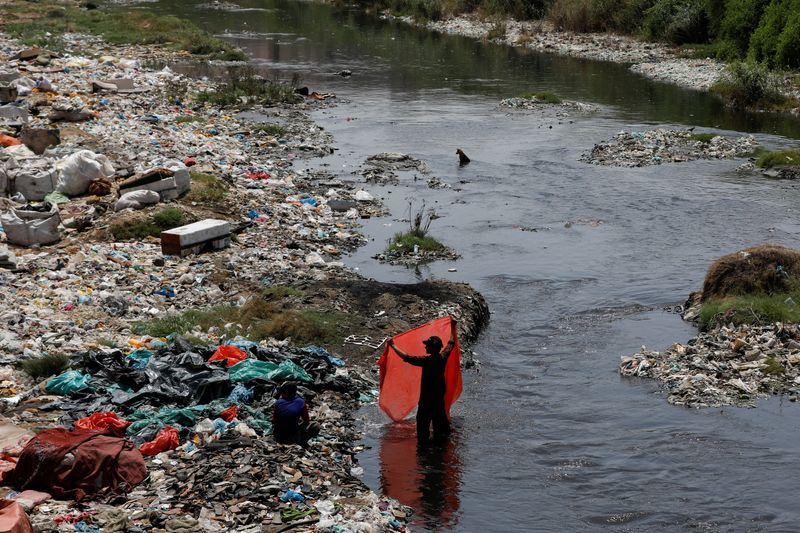Plastic talks end without agreement on curbing production
2024.04.30 05:38

By Valerie Volcovici
OTTAWA (Reuters) – Negotiations on a future global treaty to tackle soaring plastic pollution wrapped up early on Tuesday without agreement on a proposal to consider sustainable plastic production limits.
The talks were supposed to conclude on Monday but continued overnight as countries wrangled over whether the treaty should address how to tackle the overproduction of plastic.
Countries did agree to technical work before the final round of negotiations in Busan, Korea from Nov. 25 to analyze how to identify hazardous plastic chemicals in products and problematic plastic products, how to re-design plastic packaging, and how to finance efforts to tackle plastic pollution.
The hoped-for treaty could be the most significant deal relating to climate-warming emissions and environmental protection since the 2015 Paris Agreement.
“This is a small step on a very long path,” said Sivendra Michael, lead negotiator for the Pacific island nation of Fiji. “We literally have seven months remaining to deliver on this promise (to rein in plastic pollution).”
Negotiators huddled and debated until close to 2:00 a.m. on Tuesday, nearly six hours after the chair of the talks, Luis Vayas Valdivieso of Ecuador, opened what was supposed to be the closing plenary session of this round of talks.
Over 50 countries had supported a proposal by Rwanda and Peru to spend the months between now and November analyzing what are sustainable levels of plastic production.
With plastic production on track to triple by 2050, such levels “are unsustainable and far exceed our recycling and waste management capacities,” said Rwanda’s chief negotiator Juliet Kabera.
3rd party Ad. Not an offer or recommendation by Investing.com. See disclosure here or
remove ads
.
Separately, 28 countries agreed to keep the issue of plastic production on the agenda in negotiations.
“Science is clear: we must first address the unsustainable levels of plastic production if we want to end plastic pollution globally,” said Christophe Bechu, France’s minister for ecological transition.
Efforts to target production faced strong opposition from some petrochemical-producing countries, including Saudi Arabia and China, as well as from industry groups who had a heavy presence in Ottawa.
They have argued that the time before the final Busan summit would be better spent focused on topics such as managing plastic waste and product design.
China’s lead negotiator in Ottawa, Yang Xiaoling, said countries should focus on “non-contentious subjects”, such as redesigning plastic products to use less plastic or to be more easily recyclable.
But environmental groups observing the talks worry that political compromises will dilute the power of the treaty.
“The topics agreed (for further discussion) don’t cover the full range of issues on the table nor on the full lifecycle of plastic, said Christina Dixon, ocean campaigner for the Environmental Investigation Agency.
Delegates in Ottawa narrowed down a previous 70-page “zero draft” into a negotiating document to serve as the basis for the final draft to come out of Busan.








